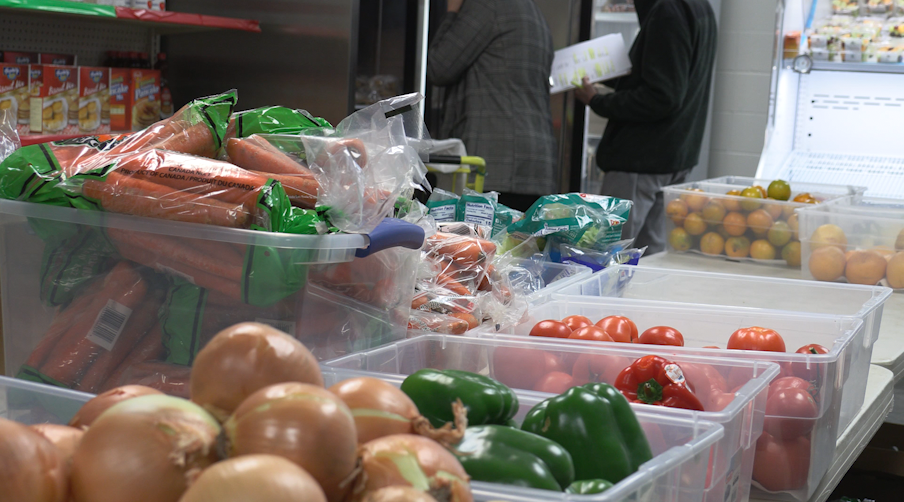
Syracuse, NY. (NCC News)- The average household with SNAP benefits lost $95 in grocery money this past Wednesday. The Supplemental Nutrition Assistance Program, formerly known as food stamps, ended the extra benefits brought upon during the pandemic.
As inflation runs high, many Americans are left struggling. Many families got used to the extra groceries, and will have to make a sudden adjustment.
St. Lucy’s Food Pantry is located in Syracuse. They service residents of the city. They have had a 25% increase in clients in the past six months.
“During COVID and with all of the unemployment we had people coming here who had never been to a food pantry for the first time” said Murray Gould, Director of the pantry.
St. Lucy’s is trying to do all they can to help their clients. They operate using a points system. The larger the family, the more food they get. Some of their food, like bread and dairy, are free.
Gould and the rest of the staff can’t do anything to help the economy and inflation rates. Factors like these can affect the amount of SNAP benefits people get.
“The largest increase in social security was for this year,” Gould said. “So if you’re a senior, you get an increase in social security, so your income goes up. A lot of people, because your income goes up, it means you get less SNAP benefits.”
The extra SNAP benefits ending is a national policy, but state policies play a part in how food pantries and banks operate as well. New York State Governor Kathy Hochul recently announced her proposal for the state executive budget for the upcoming year. The budget cuts 22 million dollars from the Hunger Prevention and Nutrition Assistance Program. This makes it harder for food banks to produce the amount of food they need, which bleeds into the operation of food pantries.
Many New Yorkers are going to feel the removal of extra SNAP benefits and the underfunding of the Hunger Prevention and Nutrition and Assistance Program quickly. It is pantries like St. Lucy’s that are going to be their saving grace.
Many have argued for state-funded universal free school meals to help take some of the weight off of struggling families. California, Colorado and Maine made this policy permanent after enacting it during the pandemic.
The state budget will be approved by the State Senate by Apr. 1. It is unclear if any changes will be made.




